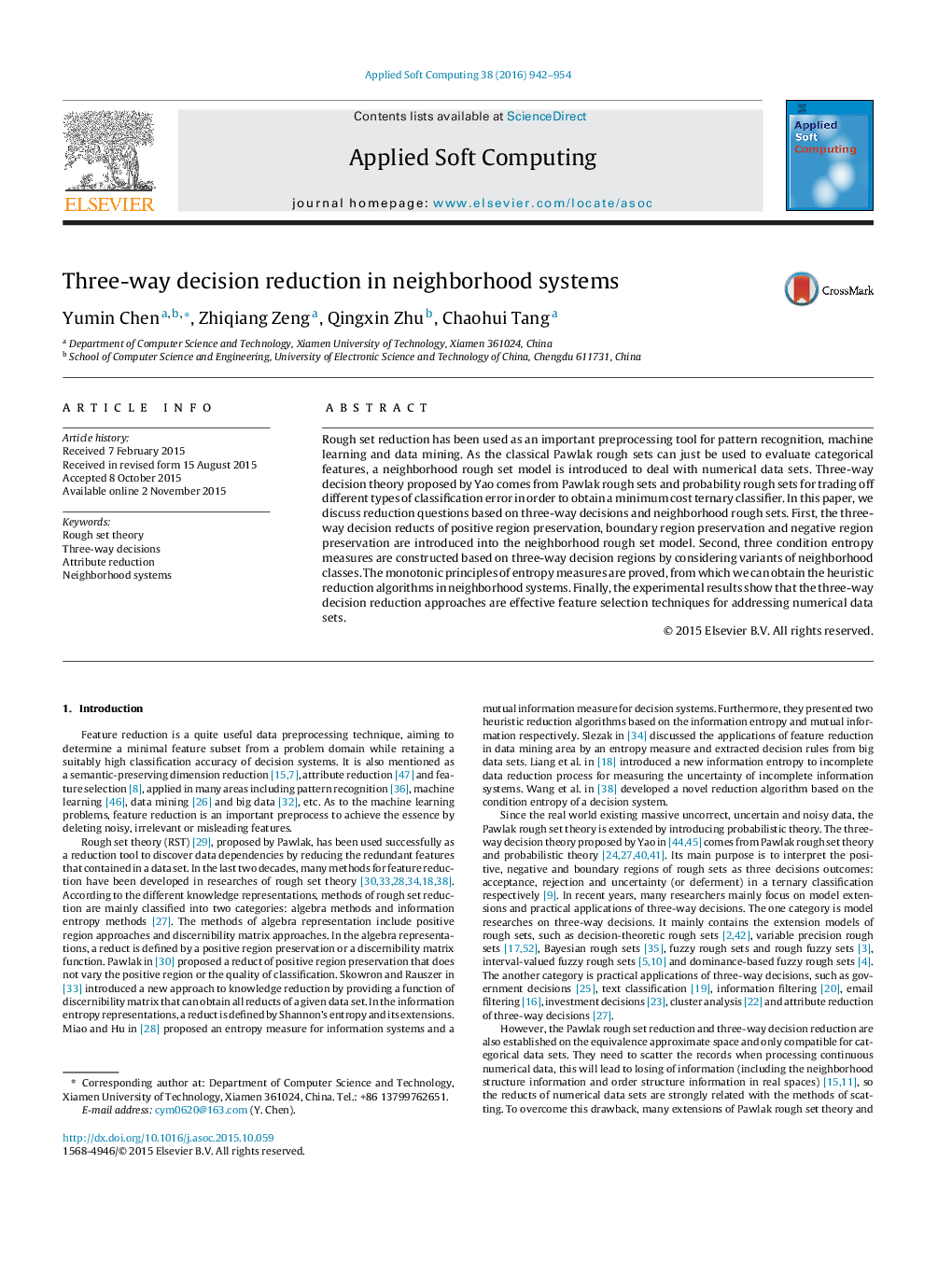| Article ID | Journal | Published Year | Pages | File Type |
|---|---|---|---|---|
| 494912 | Applied Soft Computing | 2016 | 13 Pages |
•We define the three-way decision reducts of positive region preservation, boundary region preservation and negative region preservation with the neighborhood rough set model.•Three condition entropy measures are constructed based on three-way decision regions by considering variants of neighborhood classes.•The monotonic principles of entropy measures are proved, from which we can obtain the heuristic reduction algorithms in neighborhood systems.
Rough set reduction has been used as an important preprocessing tool for pattern recognition, machine learning and data mining. As the classical Pawlak rough sets can just be used to evaluate categorical features, a neighborhood rough set model is introduced to deal with numerical data sets. Three-way decision theory proposed by Yao comes from Pawlak rough sets and probability rough sets for trading off different types of classification error in order to obtain a minimum cost ternary classifier. In this paper, we discuss reduction questions based on three-way decisions and neighborhood rough sets. First, the three-way decision reducts of positive region preservation, boundary region preservation and negative region preservation are introduced into the neighborhood rough set model. Second, three condition entropy measures are constructed based on three-way decision regions by considering variants of neighborhood classes. The monotonic principles of entropy measures are proved, from which we can obtain the heuristic reduction algorithms in neighborhood systems. Finally, the experimental results show that the three-way decision reduction approaches are effective feature selection techniques for addressing numerical data sets.
